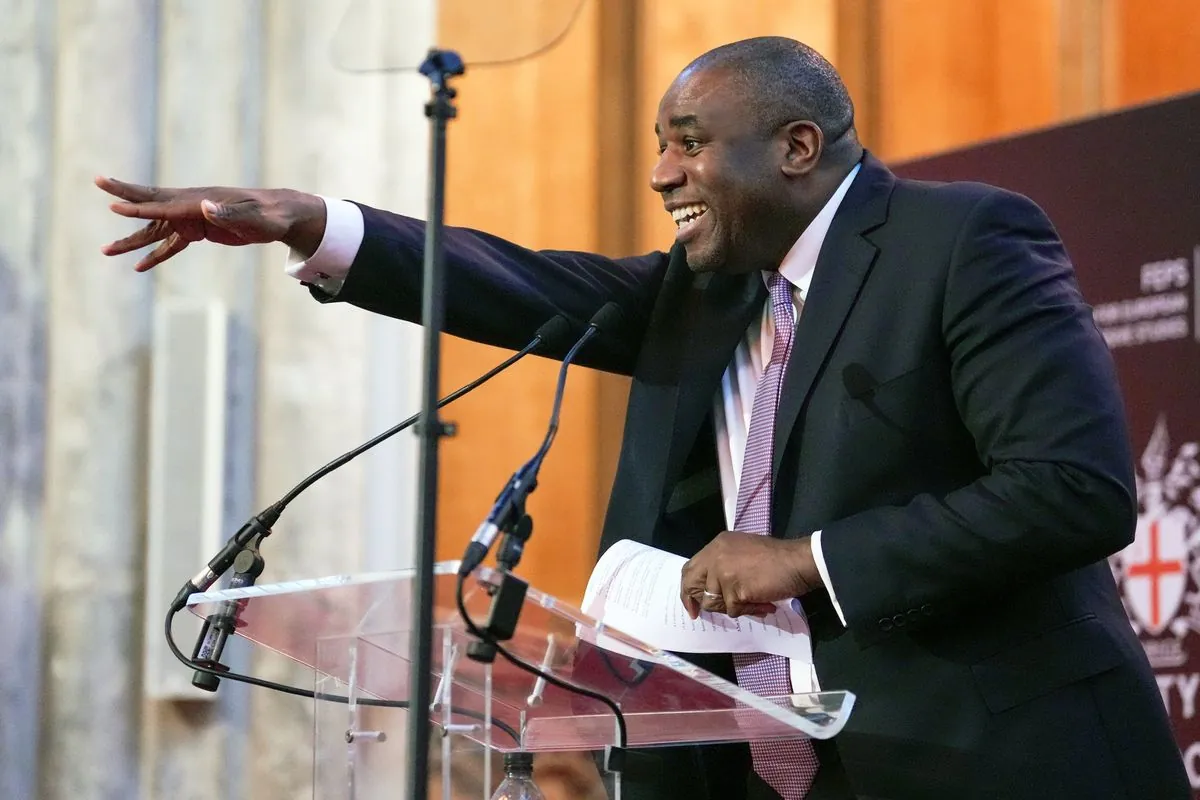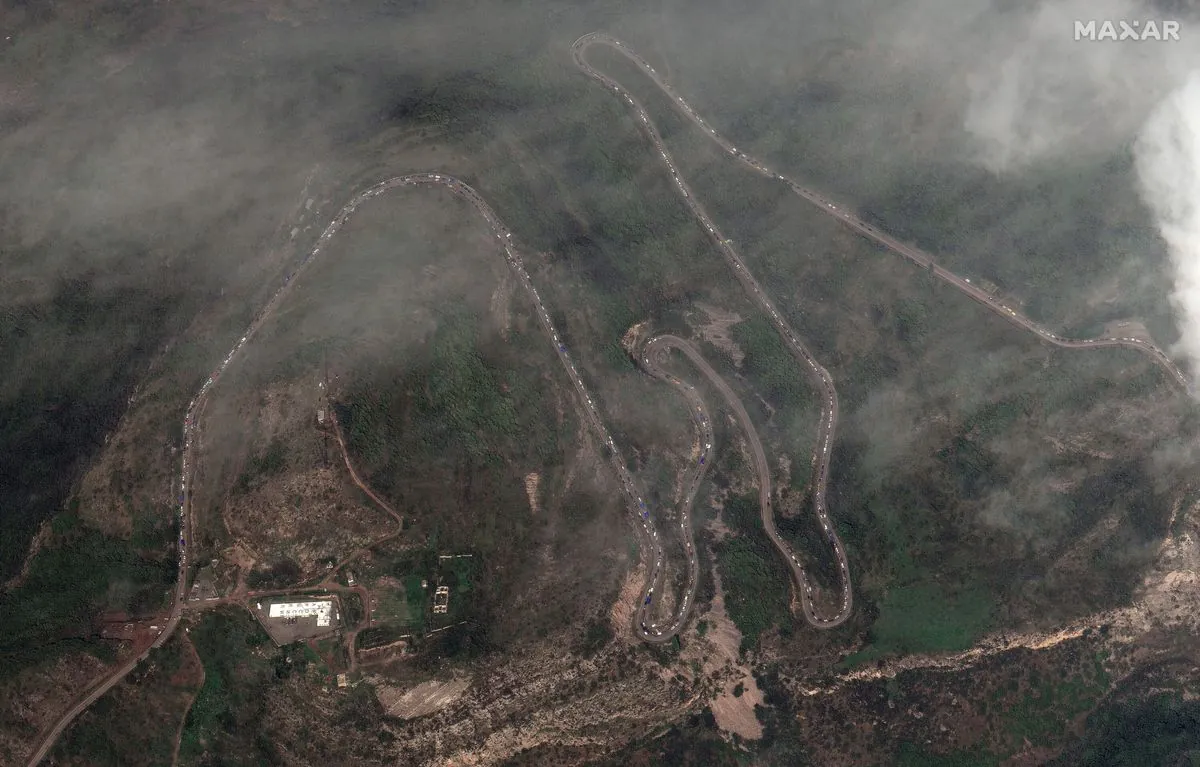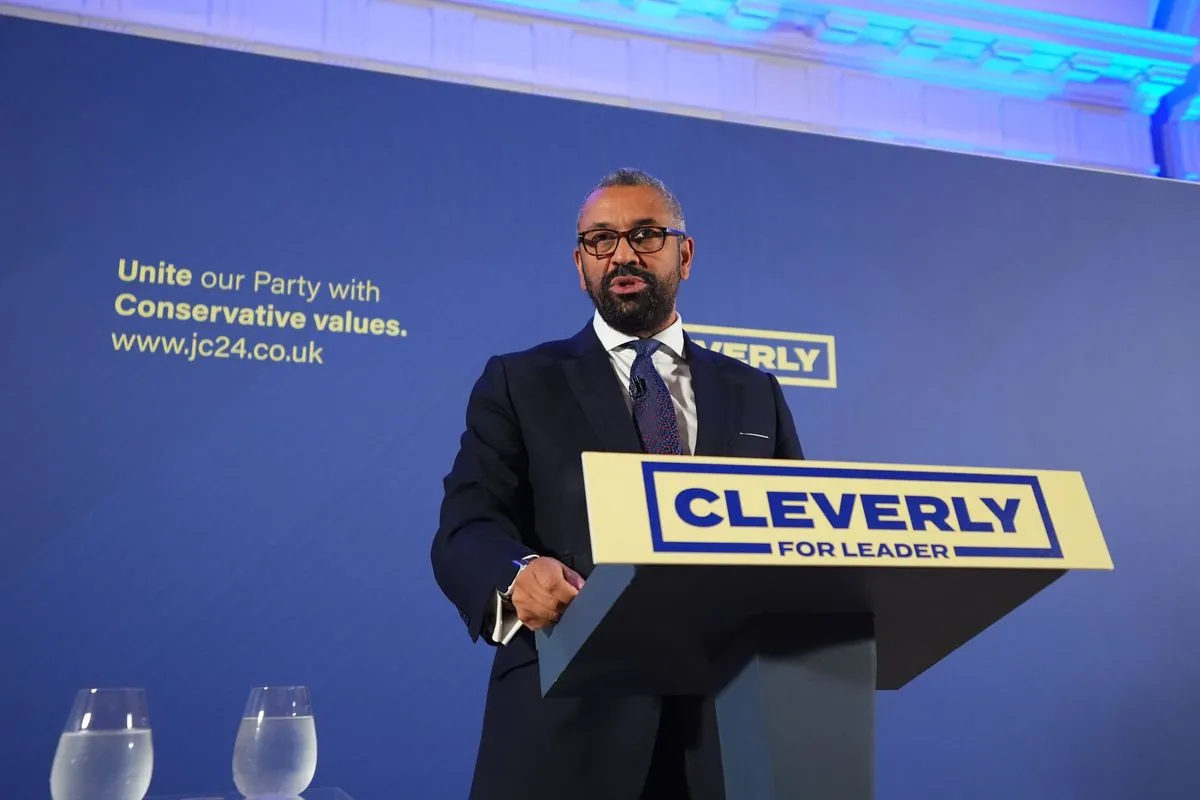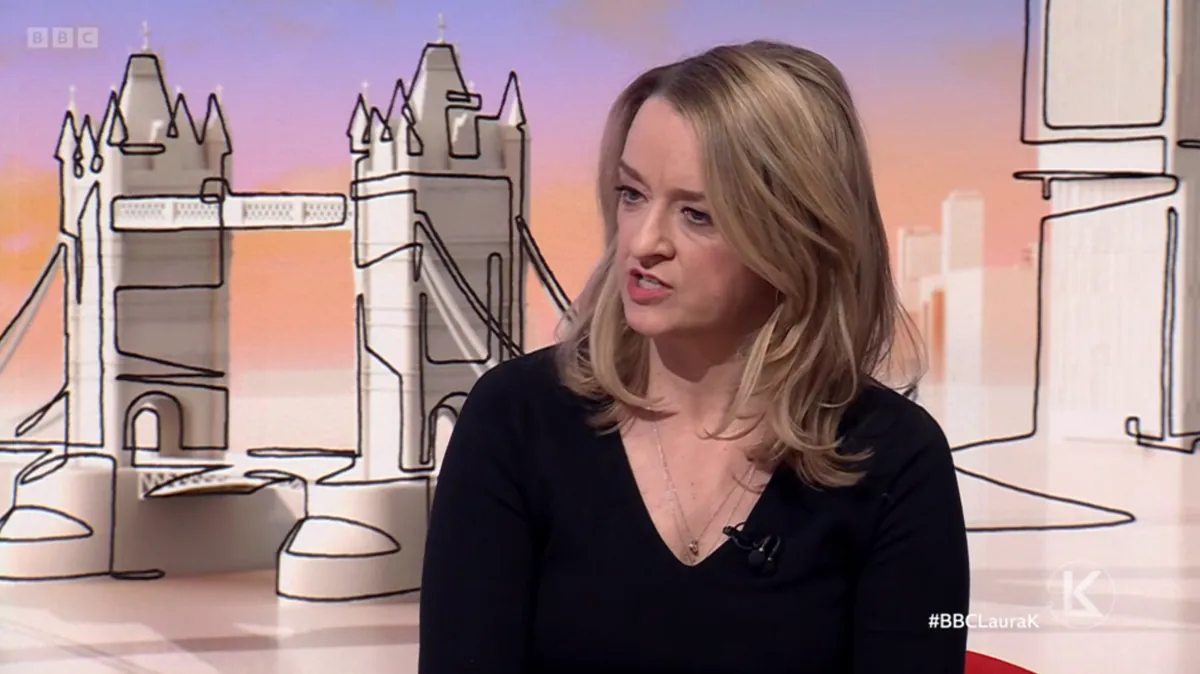Lammy's Climate Focus Criticized Amid Global Security Concerns
UK Foreign Secretary David Lammy faces criticism for prioritizing climate change over pressing global security issues in his first major policy speech, sparking debate on national defense priorities.

David Lammy, the UK's Foreign Secretary, has come under fire for his recent focus on climate change amidst a backdrop of pressing global security concerns. Critics argue that Lammy's priorities are misaligned with the current geopolitical landscape, which is marked by increasing tensions and security threats.
In his first major foreign policy address, Lammy chose to emphasize the importance of combating climate change, launching a "Global Clean Power Alliance." This move has been met with skepticism from those who believe more urgent matters demand attention.

Critics point out that Lammy's speech failed to address several critical issues:
- The ongoing conflict in Ukraine
- Iran's nuclear program and support for terrorism
- China's aggressive posture and its impact on global relations
- The genocide of Uyghur Muslims in Xinjiang
- The need for increased defense spending
- Rising levels of geopolitical instability
While acknowledging the significance of climate change, detractors argue that the transition to net zero should be gradual and economically viable. They also note that Lammy overlooked China's dominance in clean energy supply chains, which could potentially be used to penalize the UK.
"Instead of dealing with the enormous dangers facing the West right now, the foreign secretary of a UN Security Council Member, G7 and Nato nation was busy launching the government's next vanity project."
The Peace Research Institute Oslo reported that 2023 was one of the most violent years since the Cold War's end. In light of this, many expected Lammy to address how the UK might navigate the complex alliance between China, Russia, Iran, and North Korea, or discuss nuclear proliferation among hostile states.
Some observers suggest that Lammy could have explored ways to strengthen alliances such as the Five Eyes and G7 to counter the rising threat of terrorism. Others believe he missed an opportunity to articulate a coherent Middle East policy, particularly regarding support for Israel in its defense against Hezbollah.
As a member of the UN Security Council and NATO, the UK's foreign policy decisions carry significant weight on the global stage. Critics argue that Lammy's current approach fails to reassure the public that the Foreign Office is taking its obligation to defend the nation seriously.
While climate change remains a crucial global challenge, the debate surrounding Lammy's priorities highlights the complex balancing act required in modern diplomacy. As geopolitical tensions continue to rise, the UK's foreign policy strategy will likely face ongoing scrutiny and calls for a more comprehensive approach to global security issues.


































